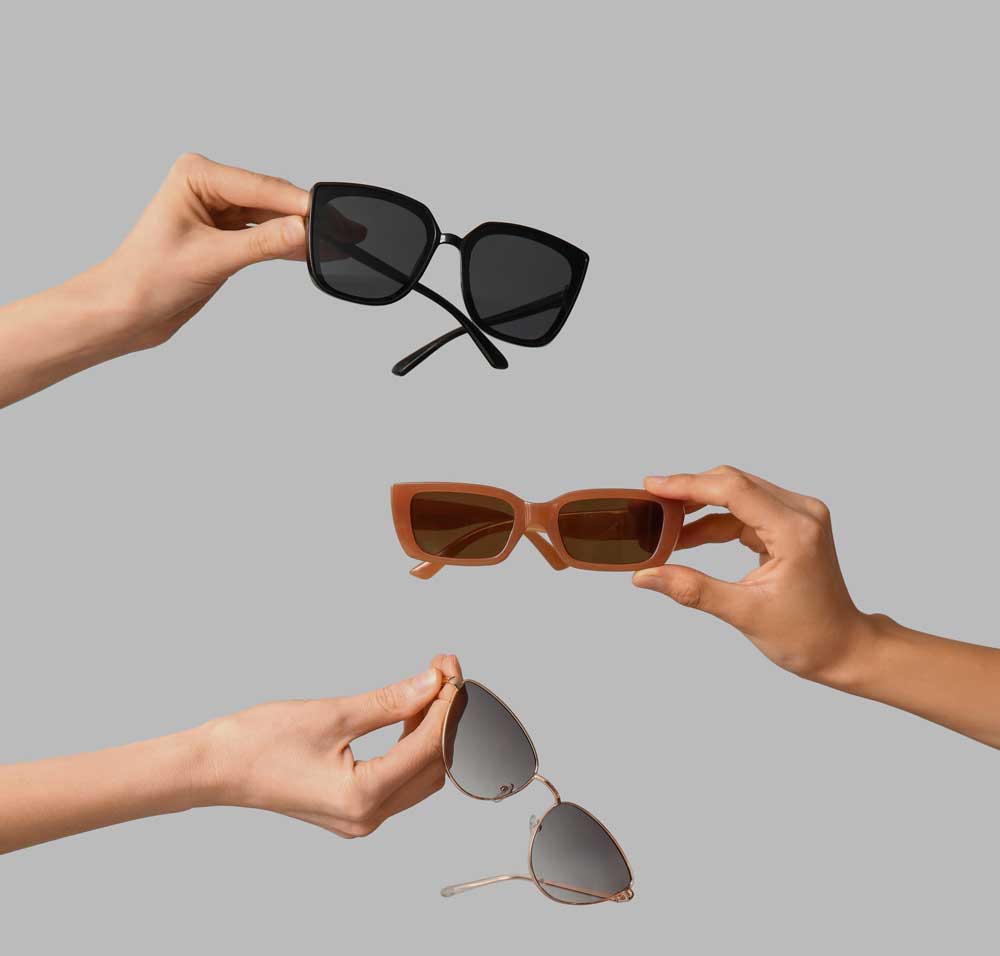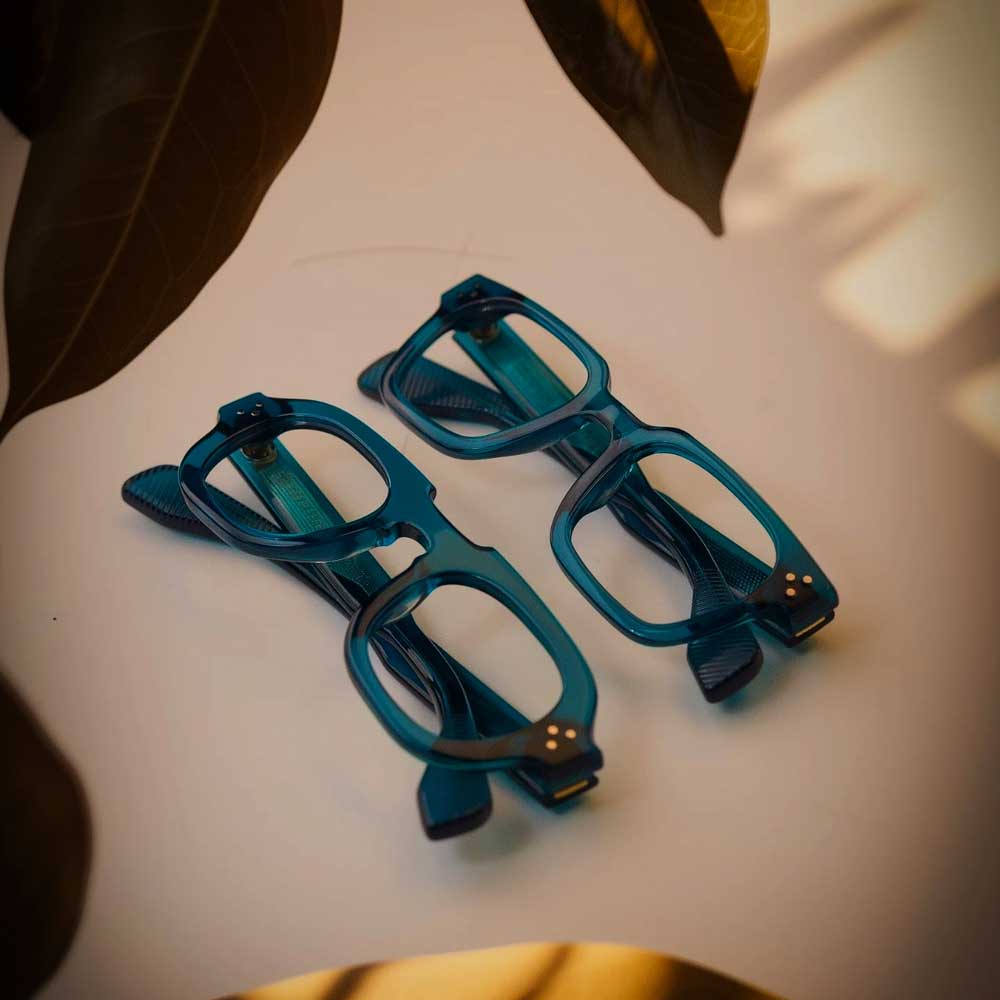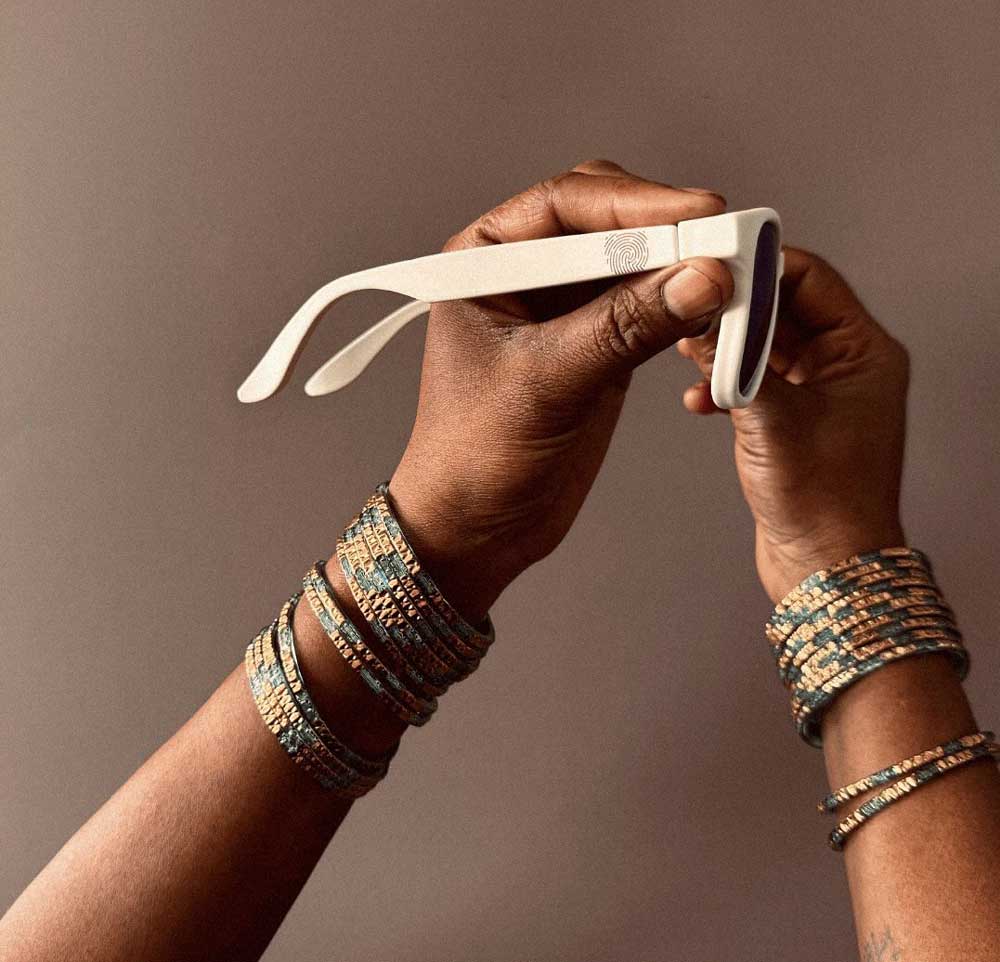They shield us from the sun, sharpen our vision, and complete our look, but behind every pair of sunglasses or contact lenses lies an often-overlooked truth: your vision care might be clouding the planet. From plastic frames that never decompose to disposable lenses that end up in the ocean, our everyday eyewear habits carry a heavy environmental footprint.
The Hidden Waste Behind Your Vision
Globally, over three billion contact lenses are discarded every year- many flushed down the drain, ending up as microplastics in waterways. These tiny fragments of silicone hydrogel don’t biodegrade; they break down into microplastics that harm marine life and enter the food chain.

Image used for representational purposes only.
Eyewear isn’t innocent either. Most sunglasses and optical frames are made from non-recyclable plastics like acetate, derived from petroleum. The manufacturing process involves toxic solvents and chemical dyes, while cheap, fast-fashion eyewear ends up in landfills when trends change.
In short, our pursuit of clear vision and good looks is blurring the line between convenience and environmental consciousness.
The Green Shift: Eco-Friendly Alternatives
Thankfully, the eyewear industry is seeing a sustainable makeover. A growing number of brands are reimagining what it means to see and look responsibly.
Biodegradable Frames: Made from plant-based acetate, bamboo, cork, or wood, these frames naturally decompose without leaving harmful residues.
Recycled Materials: Some brands craft frames from ocean plastic, discarded fishing nets, or recycled aluminium, giving waste a new purpose.
Refillable Lens Systems: Innovations in lens care now include refillable solutions and recyclable packaging, reducing single-use plastic from contact lens kits.

Image used for representational purposes only.
Brands Leading the Way
COCO LENI: Natural Materials
Goa-based COCO LENI is redefining slow luxury with handcrafted eyewear that blends German precision with Indian soul. Built in-house by skilled women artisans, each frame is cut, shaped, and polished by hand- a process that takes days, not minutes. Their materials, like bio-acetate and titanium, are natural, sustainable, and ethically sourced.

Image Source: Instagram/cocoleni
WITHOUT: Turning Waste Into Worth
What if your sunglasses were once a chips packet? That’s the innovation behind Without®, a cutting-edge Indian material science company reimagining waste and poverty through technology. This brand transforms materials that are often perceived as ‘unrecyclable’ - from multilayered plastics to textile scraps- into high-quality, fully recyclable products. Their now-iconic chip-packet sunglasses are proof of concept: design-led, waste-positive, and socially empowering. Beyond materials, Without® uplifts waste-pickers through formal employment and fair pay, merging deep tech with deep impact.

Image Source: Instagram/shop.without
MOSEVIC: Upcycled Denim Sunglasses
Mosevic turns old jeans into a new vision. Founded by Jack Spencer, this British eyewear label creates handcrafted sunglasses made entirely from upcycled denim. Each frame is built by layering denim fibres into a durable composite- an innovation born from years of research to tackle denim waste. Instead of mass production, Mosevic champions a slow, small-batch process, sourcing materials from thrift shops and clothing partners.
What You Can Do: See Change, Make Change

Image used for representational purposes only.
Recycle Your Frames: Many optical stores now run recycling programs for old eyewear. Some NGOs redistribute usable glasses to those in need.
Avoid Flushing Contact Lenses: Always dispose of them in dry waste, not the sink or toilet.
Buy Less, Choose Better: Opt for durable, timeless designs over fast-fashion eyewear trends.
Support Ethical Brands: Every purchase is a vote for the kind of world you want to see.
Our eyes may need protection, but so does the planet. By choosing eco-friendly sunglasses and sustainable lens solutions, you can help make the environment more planet-friendly.